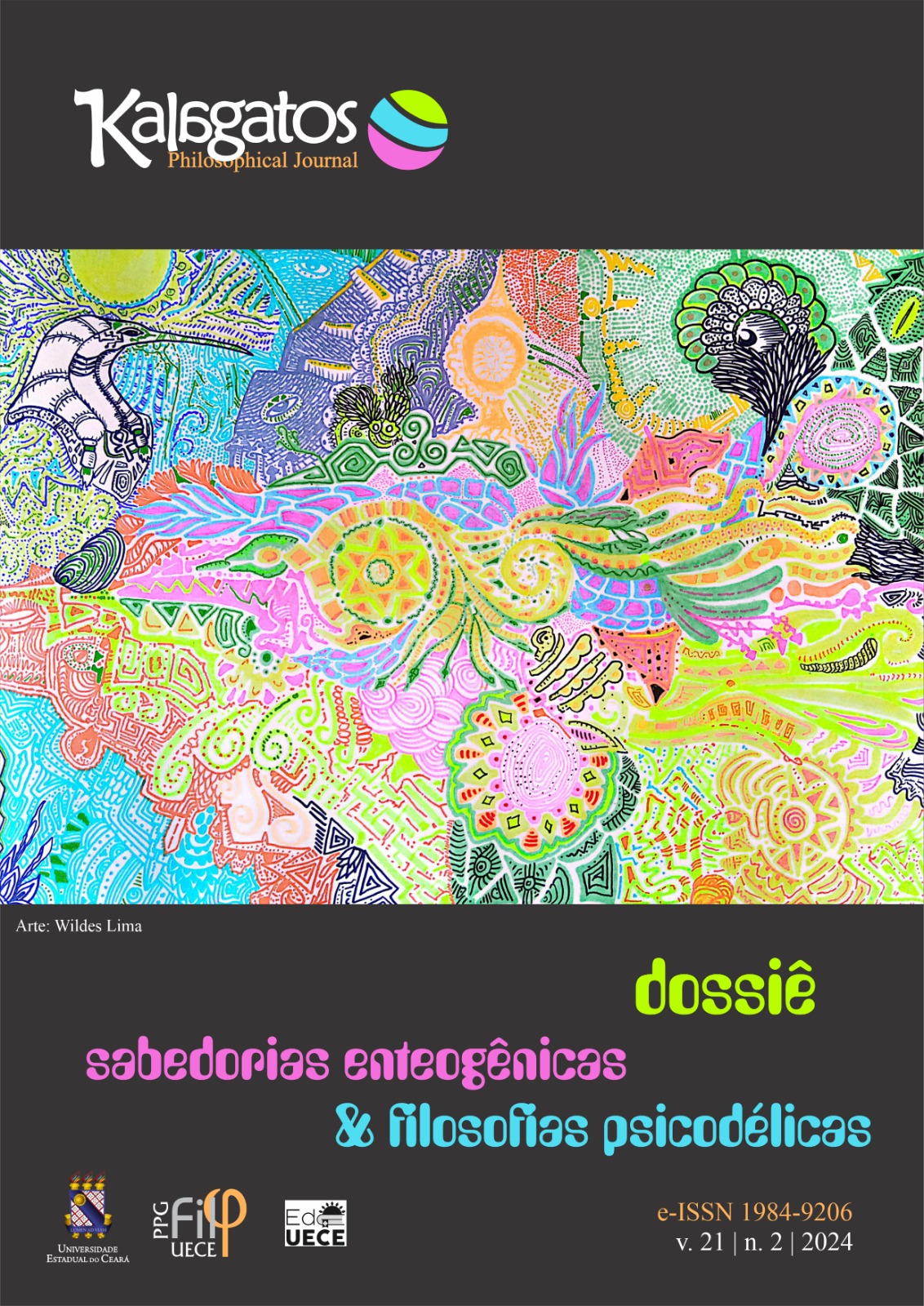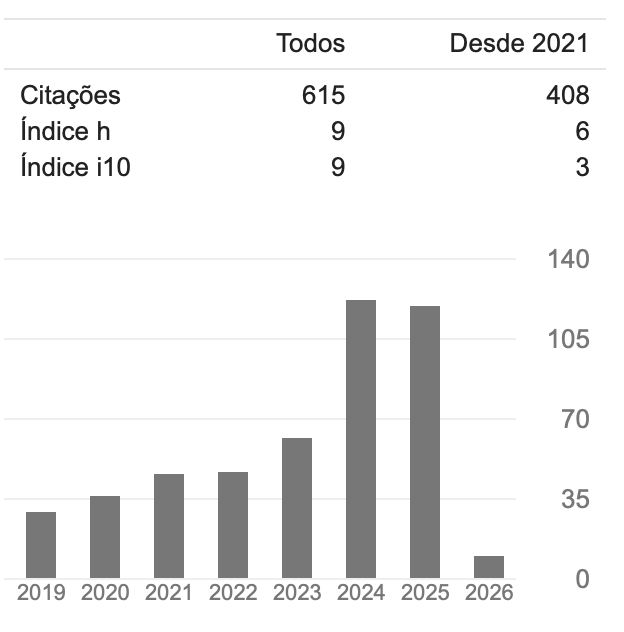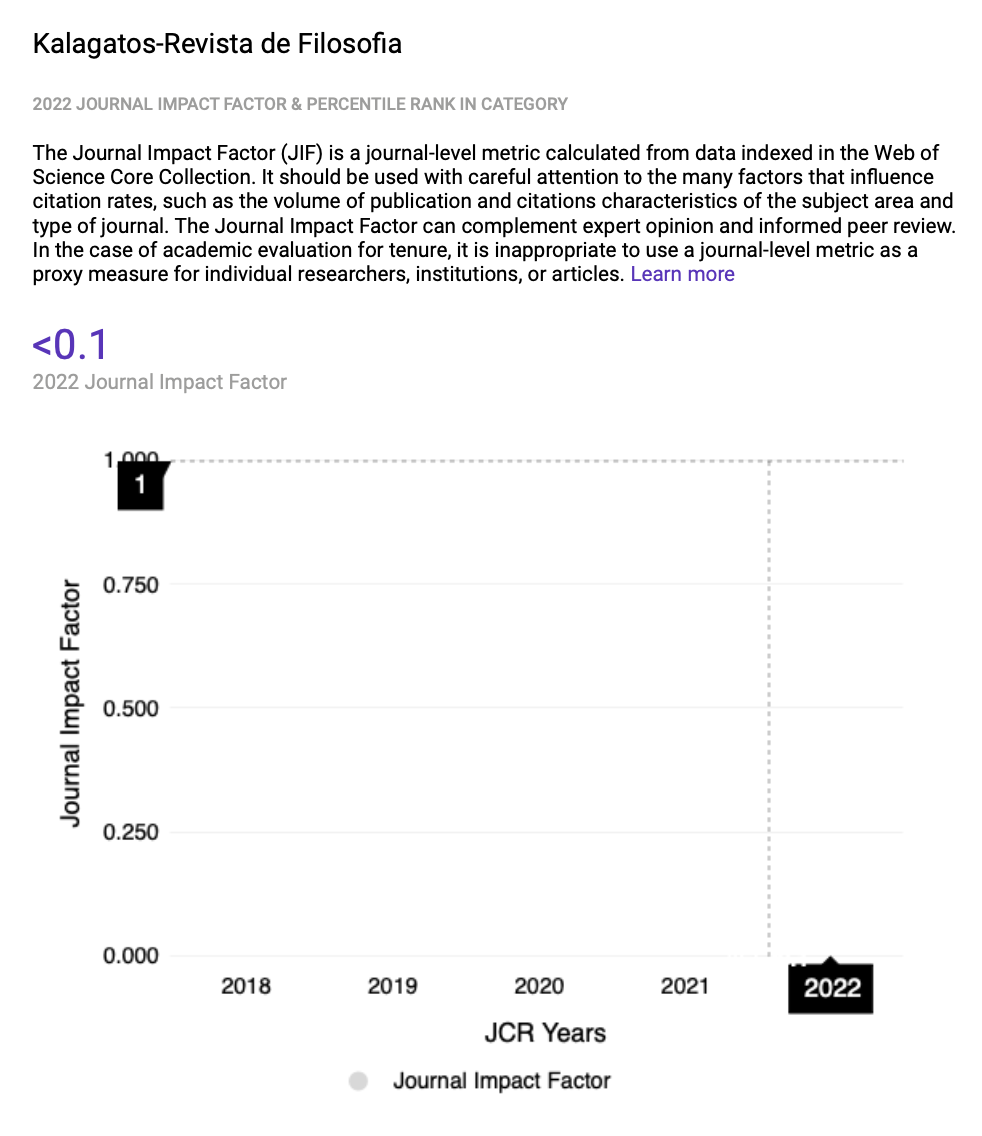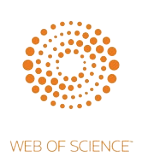General artificial intelligence: singularity versus anti-singularity and a way out of the theoretical impasse
Keywords:
Inteligência Artificial, Paradigma, Singularidade, Anti-singularidadeAbstract
This article briefly describes central ideas for and against the generic notion of the singularity, an alleged moment in time when artificial intelligence could equal or even supplant human intelligence. It is argued that these opposing theoretical positions tend to cancel each other out and that current technological progress supports the prospect of a very powerful type of artificial intelligence, but one that is still functionally distant from the type proposed by the heralds of the singularity.
Downloads
References
AWRET, Uziel. CHALMERS, David (editors). The Singularity Could artificial intelligence really out-think us (and would we want it to? Imprint Academic Ltd. 2016 BARRAT, James. Our final invention: artificial intelligence and the end of the human era. NewYork, St. Martin’s Press, 2013. eISBN 9781250032263.
BISHOP, John. Artificial Intelligence Is Stupid and Causal Reasoning Will Not Fix It.
Frontiers in Psychology, 2021. 11, 1-18 (online. doi: 10.3389/fpsyg.2020.513474)
BORN, Rainer (ed.). Artificial intelligence: the case against. New York. Routledge, 2018 (Reprinted. Original 1989).
BOSTROM, N. Deep utopia, life and meaning in a solved world. Washington DC. Ideapress Publishing. 2024.
BOSTROM, Nick. Superintelligence: Paths, Dangers, Strategies. Oxford. Oxford University Press. 2014.
BRODERICK, Damien. The Spike: how our lives are being transformed by rapidly advancing technologies. New York, A Forge Book - Tom Doherty Associates, LLC. 2021 CAMÕES, Luís, Os Lusíadas, Editora Melhoramentos, 1572/2014.
CHALMERS, David, The Concious Mind. New York. Oxford University Press. 1996. CHALMERS, David, The Singularity: A Philosophical Analysis. in “Could artificial intelligence really out-think us (and would we want it to)? In Uziel Awret, David Chalmers, eds., The Singularity Could artificial intelligence really out-think us (and would we want it to? Imprint Academic Ltd., 3-32. 2016.
CHOMSKY, Noam. The False Promise of ChatGPT. In The New York times. 2023, march 8).
DAHLIN, Emma. Think Differently We Must! An AI Manifesto for the Future. AI & Society. 2023.
DOMINGOS, Pedro. The master algorithm: how the quest for the ultimate learning machine will remake our world. Filadelfia. Perseus Group. 2015.
DREYFUS, Hubert., What Computers still can’t do: a critique of Artificial Reason., Massachusetts, The MIT Press Cambridge, 1972.
EDEN, Amnon; MOOR, James Johnny; SORAKER, Johnny, STEINHART, Eric.
Singularity Hypotheses, A Scientific and Philosophical Assessment. Springer. 2012. FJELLAND, Ragnar. Why general artificial intelligence will not be realized. Humanities and Social Sciences Communications. 7 (1): 1–9. 2020.
FLORIDI, Luciano. Devemos ter medo da inteligência artificial? https://aeon.co/essays/true-ai-is-both-logically-possible-and-utterly-implausible. 2015. FLORIDI, Luciano. The Fourth Revolution: How the Infosphere is Reshaping Human Reality Oxford, Oxford University Press, 2014.
FRANA, Philip L; KLEIN, Michael J. Encyclopedia of Artificial Intelligence: the Past, Present, and Future of AI. ABC-CLIO021. 2021. ISBN: 978-1-4408-5327-2. FRANKISH, Keith., RAMSEY, William (editors). The Cambridge handbook of artificial intelligence. Cambridge. Cambridge University Press. 2014.
FRISCHMANN. Brett; SELINGER, Evan. Re-engenering Humanity. Cambridge, Cambridge university Press. 2018.
GOOD, John. Speculations concerning the first ultraintelligent machine. In F. Alt & M.
Ruminoff (eds.), Advances in Computers, volume 6. Academic Press. 31-88. 1966. https://edoras.sdsu.edu/~vinge/misc/singularity.html. 1993.
https://publications.jrc.ec.europa.eu/repository/handle/JRC118163.10.2760/382730 (online).
HUME. David. An Enquiry concerning Human Understanding, Oxford. Oxford university Press. 2007. ISBN 978-0-19-921158-6.
KAPLAN, Jerry. Artificial intelligence: What everybody needs to know. Oxford, Oxford University Press, 2016.
KURZWEIL., Raymond. The Age of Spiritual Machines. New York: Viking Press, 1999.
KURZWEIL., Raymond. The Singularity is Near. New York: Viking Press, 2005.
LANDGREBE, Jobst; SMITH, Barry. Why machines will never rule the world: artificial intelligence without fear. New York. Routledge, 2023.
LEIBNIZ, Gottfried. Discurso de metafísica (e outros textos), Martin Fontes. 2004 MAYER-SCHÖNBERGER, Viktor; CUKIER, Kenneth. Big Data: A Revolution That
Will Transform How We Live, Work, and Think. Boston, Eamon Dolan Book Houghtn Milffin Harcourt, 2013.
MINSKY, Marvin. Logical versus Analogical or Symbolic versus Connectionist or Neat versus scruffy. Magazine Volume 1991. 1 Number 2.
MINSKY, Marvin. Will Robots Inherit the Earth? Scientific American, Oct, 1994. http://www.inf.ufsc.br/~mauro.roisenberg/ine6102/leituras/Will%20Robots%20Inherit %20the%20Earth.htm. Transcrição consultada em 20/4/2024.
MORAVEC, Hans. Mind Children, the future of robot and human intelligence, USA, Harvard University Press. 1988.
NOAH, Yuval. 21 lições para o século 21. Tradução Paulo Geiger. São Paulo. Companhia das letras, 2018.
PENROSE, Roger. Shadows of the Mind, a Search for the Missing Science of Consciousness, Oxford, Oxford University Press, 1994.
RAINER, Born (Ed). Artificial Intelligence, the case against. New York, Routledge, 2018 online (1987, primeira edição em suporte físico). ISBN: 978-1-351-14152- 9.
Russell, Stuart., Norvig, Peter. Artificial intelligence, a modern approach. New Jersey. Prentice Hall. 2010. Third Edition.
SAMOILI Sofia; LOPEZ COBO Montserrat; GOMEZ GUTIERREZ Emilia; DE PRATO Giuditta; MARTINEZ-PLUMED Fernando; DELIPETREV Blagoj, Defining Artificial Intelligence, EUR 30117 EN, Publications Office of the European Union, Luxembourg, 2020, ISBN 978-92-76-17045-7, doi:10.2760/382730, JRC118163 (consultado) 22 Maio 2024.
SAYGIN, Ayse; CICEKLI; Ilyas & AKMAN, Varol. Turing test: 50 years later. Minds and Machines. 10 (4):463-518. 2000.
SEARLE, John. 1992. The rediscovery of the mind. Cambridge, MA: MIT Press.
SEARLE, John. Minds, Brains and Programs. Behavioral and Brain Sciences. 1980. 3: 417–424.
SEARLE, John. What Your Computer Can’t Know. New York. Review of Books, October 9. 2014.
SWINBURNE, Richard. The Existence of God. New York. Clarendon Press. 2004 (Second Edition).
TEGMARK, Max. LIFE 3.0: being human in the age of artificial intelligence. New York. Alfred A. Knopf. 2017.
TURING, Alan. Computing machinery and intelligence. Mind 59. 433-60. 1950.
VILAÇA, Murilo; KARANDISKY, Murilo; CANDIOTTO, Kleber. Reflexões sobre o futuro da inteligência artificial. Entrevista com Luciano Floridi. Unisinos Journal od philosophy, 2024.
VINGE, Vernor. The coming technological singularity. 1993. https://edoras.sdsu.edu/~vinge/misc/singularity.html.
WATANABE, Masataka. From Biological to Artificial Consciousness, Neuroscientific Insights and Progress. Springer, 2022. (electronic). ISBN 978-3-030-91138-6 (eBook).
WEIZENBAUN, Joseph. Computer Power and Human Reason. Massachusetts. The MIT Press. 1976.
Downloads
Published
How to Cite
Issue
Section
License
Copyright (c) 2024 Luis Estevinha Rodrigues

This work is licensed under a Creative Commons Attribution 4.0 International License.



















